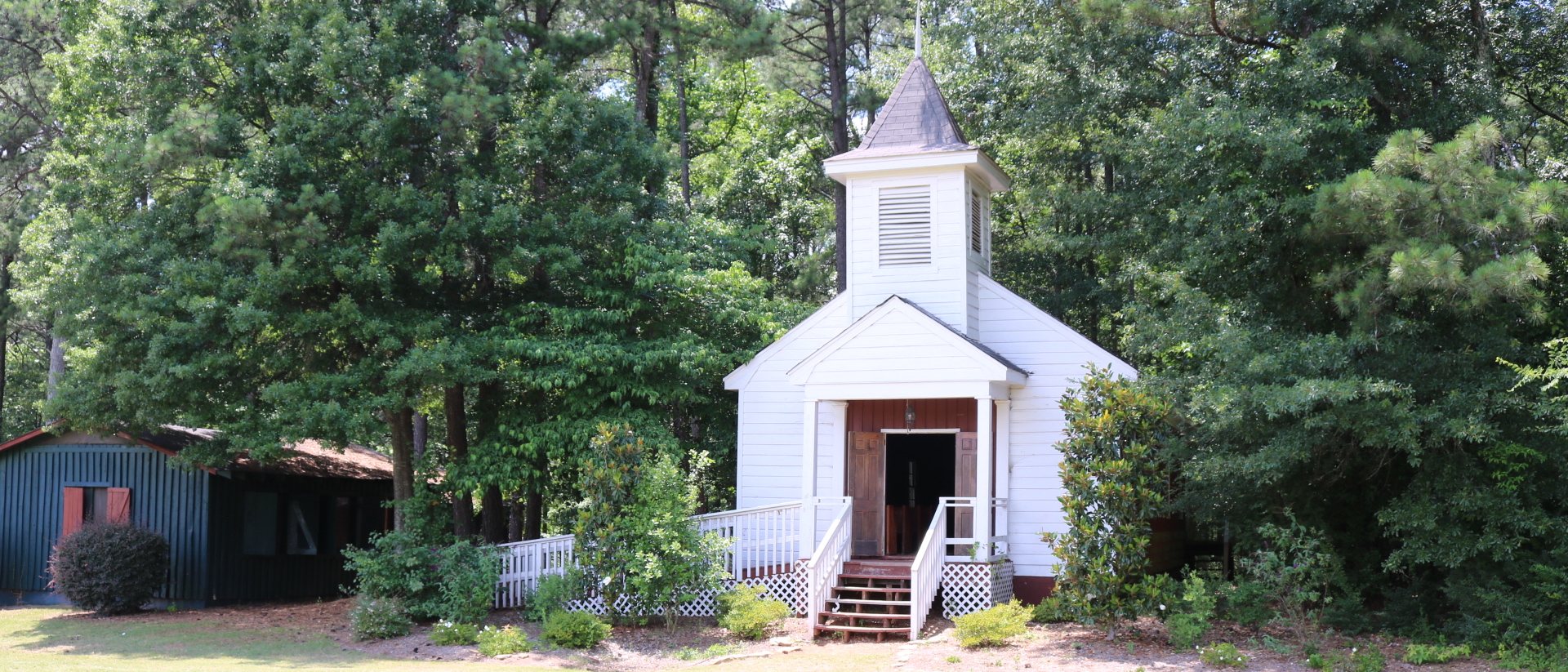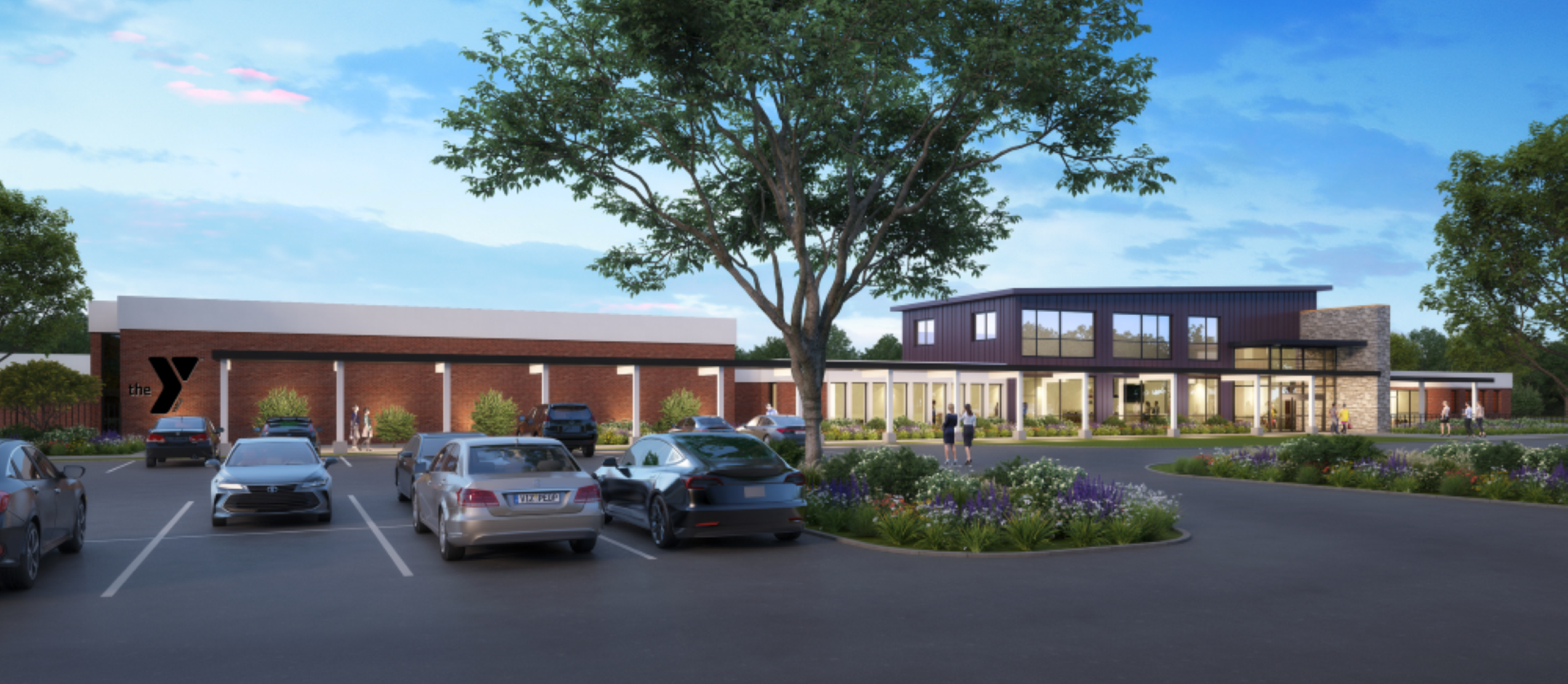History
The history of the Athens Young Men's Christian Association (YMCA) began with George Williams, who in 1844 found himself dissatisfied with his life in the big city of London, England. During the Industrial Revolution, young men and boys were leaving their farming communities for cities like London - cities "full of prostitution and other immoral temptations." Williams, a young drapery worker, met with eleven other men who shared his discontent and organized the YMCA.
For several years, men and boys met in William's bedroom for fellowship and Bible study. The idea for the Christian based organization soon spread throughout England and eventually overseas to America. The first American YMCA was established in Boston, Massachusetts in 1851.
The nation's third oldest, the Athens YMCA, was established March 26, 1857, during a town meeting at the First United Methodist Church. A March 25, 1857 article in the Southern Banner, a predecessor to the Athens Daily News/Banner-Herald, reported that the "meeting was well attended, and among those present we were glad to see a considerable number of students of the college (University of Georgia)… A committee of three was appointed to draft a Constitution, and to report at a meeting to be held at the same place." The War Between the States disrupted the new organization, and was not reconstituted until the 1880's.
For several decades, Bible study and other YMCA functions were held in the First Presbyterian Church on East Hancock Avenue. After picking up steam in the community, the Athens YMCA hired it's first paid employee, Walter T. Forbes, in 1897. Because of the Church's limited space, Forbes led a campaign to move the YMCA into a new building the following year.
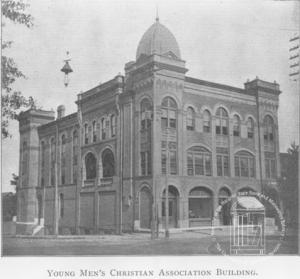 1st YMCA Facility - 1889
1st YMCA Facility - 1889
In April 1889, the cornerstone for a new YMCA building was laid on the corner of Clayton and Lumpkin streets.
The new building was home to Northeast Georgia's first indoor pool, a 168 square-foot pool known as the "Iron Tank." Located in the basement of the building the pool was a magnet for men and boys, whose constant splashing doused the kerosene lamps used for lighting. The building's amenities included a gymnasium, swimming pool, bowling alley, reading rooms, as well as residence rooms that were rented out to young students that needed an affordable place to stay. Bible study and Sunday church services were held regularly. The ground floor storefronts were rented to merchants to help provide income for the YMCA's operational expenses. Edgar E. Jones was the board volunteer credited with organizing and directing the effort that resulted in the building's construction, and capital campaign.
While the Athens YMCA grew and matured, other YMCA's were inventing new sports to attract more members. In the 1870's, Robert J. Roberts of the Boston YMCA utilized civil war cannonball weights as rudimentary dumbbells, and thus introduced the concept of "weight training and body building." In 1891, Dr. James Naismith of the YMCA's Springfield College in Massachusetts nailed up two bottomless peach baskets, took a soccer ball, and invented the game of "basketball." Four years later in 1895, William Morgan invented volleyball at the YMCA in Holyoke, Massachusetts. The YMCA also started residence camping - with the 1st residence camp at Camp Dudley (New York) in 1884. The YMCA was also instrumental in the development of the "Camp Fire Girls" the present day Girl Scouts, the Peace Corps (patterned after the Y program World Service Workers), Boy Scouts of America, Swimming & Aquatics (1st swimming "bath" was built in Brooklyn, New York in 1885), Softball (named by Walter Hokangon of the Denver, Colorado YMCA), USO (created in 1940 by a joint effort).
2nd YMCA Facility -1919
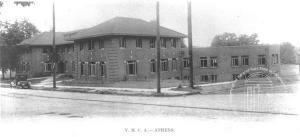 When the facilities of the Clayton and Lumpkin Street building no longer meet the needs of the growing community, an effort was launched to raise money for a new building. The board raised over $100,000 to build a new facility on the corner of Broad and Lumpkin streets facing the University campus. When the men and boys weren't involved in Bible study, they swam in the 1,200 square-foot pool, played softball, football, and other sports on the athletic fields or played basketball in the gym that required a distinctive shooting style. To avoid hitting the balcony overlooking the court, players learned to shoot line drives at the basket, some reportedly becoming quite proficient over time. The first basketball teams of Athens High School (now Clarke Central) and the University of Georgia played in the YMCA's gym, taking advantage of the balcony as an additional defender. The University-teams were coached by W.T. Forbes for many years.
When the facilities of the Clayton and Lumpkin Street building no longer meet the needs of the growing community, an effort was launched to raise money for a new building. The board raised over $100,000 to build a new facility on the corner of Broad and Lumpkin streets facing the University campus. When the men and boys weren't involved in Bible study, they swam in the 1,200 square-foot pool, played softball, football, and other sports on the athletic fields or played basketball in the gym that required a distinctive shooting style. To avoid hitting the balcony overlooking the court, players learned to shoot line drives at the basket, some reportedly becoming quite proficient over time. The first basketball teams of Athens High School (now Clarke Central) and the University of Georgia played in the YMCA's gym, taking advantage of the balcony as an additional defender. The University-teams were coached by W.T. Forbes for many years.
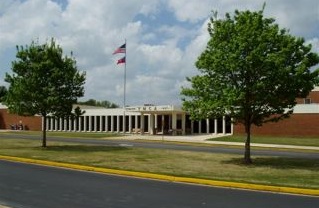 1967 Facility / Present Day
1967 Facility / Present Day
By the 1960's, YMCA programs began to move away from an exclusively male focus toward a more family/community oriented approach. Thus, the 1919 building was sold, and in 1967 the Athens YMCA opened a 90,000 square-foot facility on Hawthorne Avenue at a cost of over $800,000. In the early 1970's the old YMCA building was demolished, and the rear of the property became a parking lot for the Holiday Inn, which constructed a small "vest-pocket" park along Lumpkin Street.
This current YMCA facility was directed
by Mr. John A. Simpson from 1972 to his retirement in 2002. Mr. Simpson (who stills resides in Athens) steered the YMCA for more than 30 years and left a lasting legacy of financial stability, varied program offerings, and volunteer support. Mr. Simpson also had a hands on management of Athens Y Camp until the early 1990's when he hired Edward Schaefer as camp director, who serves as the camp director to this day.
The Athens YMCA would lose two of its greatest leaders in 1968 and 1972. Cobern Fraser Kelley, the longtime director of youth and originator of Pine Tops Camp died April 11, 1968. His grave lies on a small hilltop next to his second home - the Athens YMCA.
H.C. "Pop" Pearson, who directed the YMCA for 32 years, died of cancer on July 2, 1972, after laying an equally strong foundation for the organization through his determination and spirit. Pop helped found "Camp High Harbour" with Frank Inman in 1970. Today the camp exists as a residence camp of the Atlanta Metro YMCA.
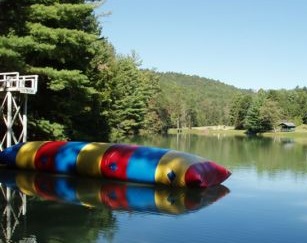 Another notable Athens YMCA leader was Coach Mike Castronis who worked at the Athens YMCA and Athens Y Camp for many years. Coach Castronis also was an All American at Georgia and coached the Dawgs for several years. Other notable Athens YMCA participants include Fran Tarkenton (professional quarterback for the Minnesota Vikings), Pat Dye (Auburn University Football Coach and Athletic Director), Coach Dan Magill (University of Georgia Tennis Coach, Sports Information Director, and tenacious competitor), Fred Birchmore (local Athenian who inspired many with his numerous outdoor outings - he actually rode a bike around the world - and love of nature, and physical fitness).
Another notable Athens YMCA leader was Coach Mike Castronis who worked at the Athens YMCA and Athens Y Camp for many years. Coach Castronis also was an All American at Georgia and coached the Dawgs for several years. Other notable Athens YMCA participants include Fran Tarkenton (professional quarterback for the Minnesota Vikings), Pat Dye (Auburn University Football Coach and Athletic Director), Coach Dan Magill (University of Georgia Tennis Coach, Sports Information Director, and tenacious competitor), Fred Birchmore (local Athenian who inspired many with his numerous outdoor outings - he actually rode a bike around the world - and love of nature, and physical fitness).
Kirk L. Eich (2002 to 2013) was the YMCA CEO/Executive Director for 11 years. Kirk left the Athens YMCA to take a similar position in Lakeland, Florida. Under Kirk's leadership the Athens YMCA made great strides in facility improvements, program development, membership expansion and staff development.
Current YMCA CEO, Shae Wilson-Gregg (one of the first female Y CEO's in Georgia), began her career at the Athens YMCA as a coach in the 1990's. Shae is looking forward to moving the Y forward while cherishing its rich heritage and traditions.
Athens Y Camp
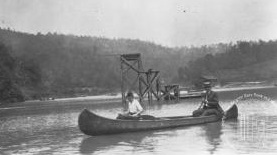 In 1898 the Athens Y.M.C.A established a Summer camp in the mountains of Northeast Georgia near Tallulah Falls. This camp is the 5th oldest YMCA camp ever founded in America (www.ottertooth.com). W.T. Forbes, the camp's founder, directed it for forty-two years. The 500+ acre camp with cabins, sports fields, a lake, and many other recreational facilities has served thousands of youngsters over the years. In some families, three generations of campers have attended "Big Y" in the Summer.
In 1898 the Athens Y.M.C.A established a Summer camp in the mountains of Northeast Georgia near Tallulah Falls. This camp is the 5th oldest YMCA camp ever founded in America (www.ottertooth.com). W.T. Forbes, the camp's founder, directed it for forty-two years. The 500+ acre camp with cabins, sports fields, a lake, and many other recreational facilities has served thousands of youngsters over the years. In some families, three generations of campers have attended "Big Y" in the Summer.
The camp was begun, Forbes said, to be "a place where boys can spend vacations in the activities designed to develop them mentally, physically, and spiritually, and at the same time give them a happy camp experience." The camp has been doing just that for 106 years. In 1943 Forbes was succeeded by H.C. "Pop" Pearson, Jr., who directed the camp for three decades. John Simpson became director after Pop Pearson's death in 1972.
The camp is still in operation and is as popular as ever with Summer residence camps (Athens Y Camp for Boys and Camp Chattooga for Girls) and operates as a seasonal Retreat Center during the none Summer months.
In 1899, the YMCA renovated the adjacent girl's camp (Camp Chattooga) that was started as a separate, girls only camp by W.T. Forbes' wife. Camp Chattooga was sold after their deaths, and graciously leased to the Athens YMCA by the family of Neil L. Pruitt. The YMCA has painstakingly renovated the entire camp to the glory it once possessed and is proud to once again host girls residence camping.

